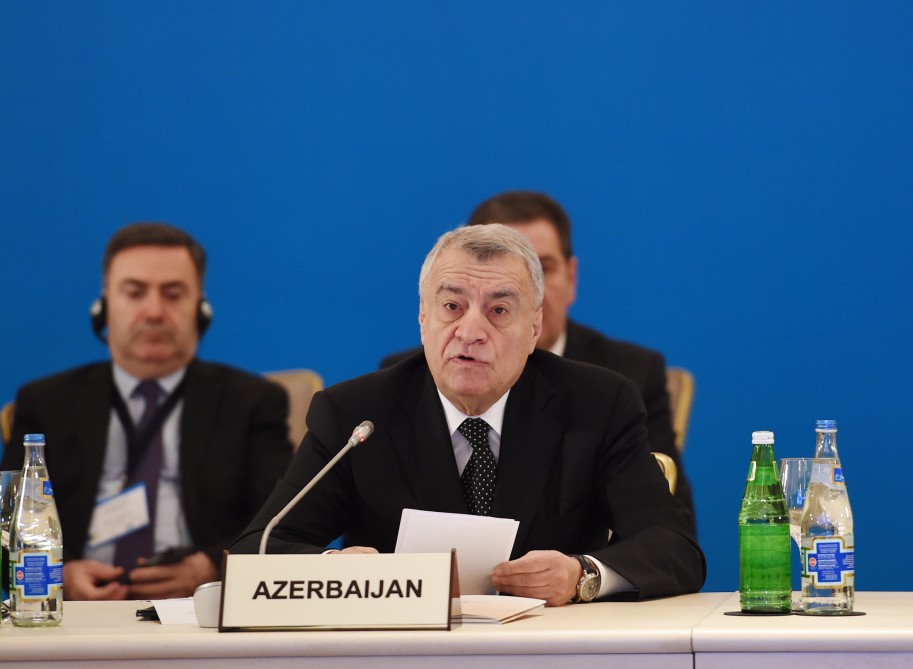Impacts of Doha failure on Azerbaijan

By Fatma Babayeva
The long awaited meeting in Qatari capital last Sunday resulted in failure on reaching a deal on oil production freeze by the major oil producing countries and was not capable to stabilize the oversupplied oil market and prices.
Natig Aliyev, Azerbaijani Energy Minister who attended Doha meeting said on April 19 that the contradictions existing among member states within the Organization of the Petroleum Exporting Countries impeded to attain success in the meeting on April 17.
Azerbaijan was one of several countries who supported oil freezing initiative at Doha meeting of major oil producers on April 17. Although, Azerbaijan holds roughly 1 percent of the world total oil production, it was interested in solving the oil glut problem in the global market as the country’s main revenues has come from exported hydrocarbon reserves till now. Nevertheless, experts believe that the failure of the meeting will not have negative impacts on Azerbaijan’s economy.
The minister said the agreement which was to be signed during Doha meeting envisaged freezing oil production at the level of January 2016 till October 2016.
Once adopted, the agreement could be a major signal for OPEC member-states and non-OPEC oil producers, the minister added.
The draft agreement was submitted to the participants of the meeting. This document covered issues such as preventing further decline in oil prices, reaching consent among participants on freezing production, monitoring how compliant the countries that take obligations, involving other countries in this process, establishing a high-level monitoring committee, creating working groups to analyze the possible changes on the oil market after the document become effective and other issues, the energy minister noted.
In accordance with the new version of the draft agreement, the deal was going to be valid only if all OPEC member states agree to freeze oil production, Aliyev emphasized. The participants were not pleased with Saudi Arabia's stance.
The meeting was delayed for six hours due to the consultations among Saudi Arabia, Iran and Qatar, the minister stressed. This delay and the content of the statements by Saudi Arabia, Russia, Qatar and Venezuela following February 16 meeting showed that the expectations from Doha meeting would fail, and submission of the new draft agreement proved that once again.
In addition, Alexander Novak, Russian energy minister who was one of the initiators to freeze oil production, voiced his protest during the meeting by saying that the representatives of the countries arrived to sign, rather than to discuss.
The participants in the meeting also had disagreements over the level of freezing oil production during Doha talks, Aliyev said.
The proposals suggested freezing oil output at the level of January, March or the first quarter of the year, Aliyev said, but at the end, due to the lack of common mutual consent and necessary time, it was decided to continue discussions during the next meeting in June.
The minister added that if the agreement was signed, it would become the first ever event when the OPEC member states and other oil producing countries agreed to cooperate.
OPEC has a daily production of 97 million barrels of oil and controls one third of the global oil production. The organization could have showed a strong stance and made a decision that meets the interests of Azerbaijan and other oil producers, the minister stressed. However, the cartel was not ready for this mainly because of geopolitical reasons.
The minister stated the importance of stabilizing oil prices for both producer and consumer countries. However, Aliyev believes that countries such as Saudi Arabia, Iran and Libya will continue to increase their oil output.
Saudis revealed their intention to increase oil production to 12.5 million barrels per day, while Iran plans to increase its output to the pre-sanction level- about 4 million barrels per day, Aliyev noted. It's obvious that the contradictions between these countries make achieving any agreement impossible. Regarding the other producers, they do not plan to increase production.
Overall, the meeting attended by 17 countries ended without any deal on freezing oil production.
After the failure of Doha meeting, the oil prices are expected to drop to $30 per barrel.
Experts expect that price fluctuations will continue until the next meeting in June.
Azerbaijan has commenced economic reforms and application of post-economic model as the country aims to decrease the dependence on oil revenues and diversify its economy.
Currently, when oil prices are low, it may seem a difficult task to realize these measures. However, the major part of the state revenues (78.5 percent) came from non-oil sector during the first quarter of 2016. The country attaches great importance to the regional and agricultural development, expansion of domestic production and enhancement of the country’s export potential which will contribute to decreasing country's dependence on oil and gas revenues in future.
---
Fatma Babayeva is AzerNews’ staff journalist, follow her on Twitter: @Fatma_Babayeva
Follow us on Twitter @AzerNewsAz
Here we are to serve you with news right now. It does not cost much, but worth your attention.
Choose to support open, independent, quality journalism and subscribe on a monthly basis.
By subscribing to our online newspaper, you can have full digital access to all news, analysis, and much more.
You can also follow AzerNEWS on Twitter @AzerNewsAz or Facebook @AzerNewsNewspaper
Thank you!
